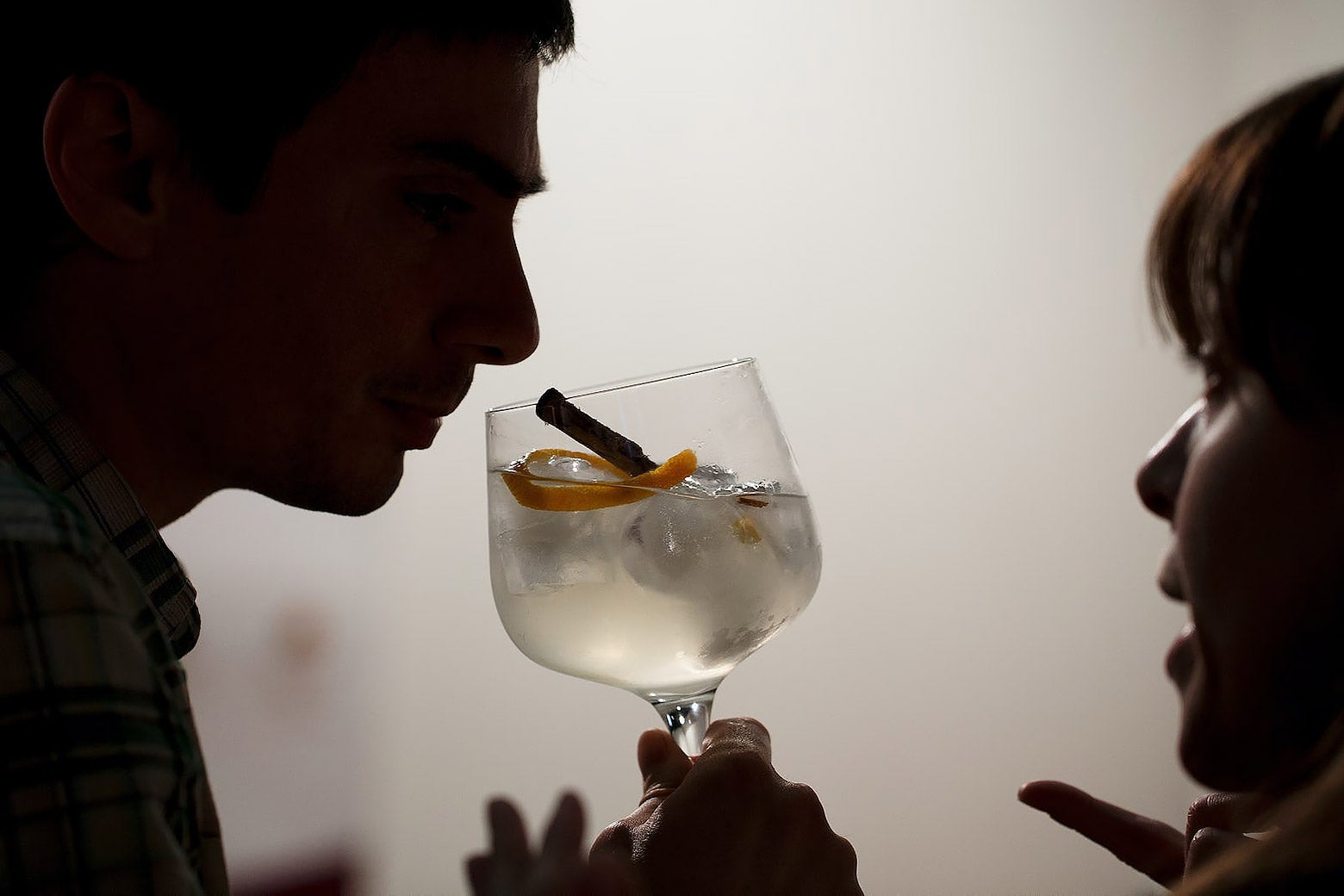Back in December of 2006, right after I’d pulled up stakes to follow the woman who would eventually become my wife to New York, said woman made a preposterous proposal: Not drinking for the entire month of January. It was more of a dare than anything. Could we really forgo wine with dinner, Manhattans with friends, and beers while watching football games, for a month?
Eight years later, we are on our ninth consecutive Drynuary: our name for the practice of kicking off the New Year by abstaining from booze for a month. The idea was born as sort of a post-holiday cleanse, a way to atone for the excesses of food and drink that start around Thanksgiving and stagger through New Year’s. Weeks of holiday parties and family gatherings inevitably lead to a desire to take a break from from the attendant overindulgence. An alternative to a traditional New Year’s resolution, Drynuary was a challenge to ourselves that was more coherent and realistic than going to the gym, but with similar benefits: feeling healthier, sleeping better, dropping a few pounds. Plus, unlike a gym membership, Drynuary saves us money.
There’s also an undeniable confidence that comes from doing something that not everyone can do. Make no mistake: If you like drinking, Drynuary is hard, and it’s supposed to be. I’m not particularly religious, but I appreciate the Lenten aspect of giving up something I enjoy for an extended period of time just to say I can. (My birthday falls during Lent, so no way am I giving up drinking then.)
Drynuary forces us to consider the the role alcohol plays in our everyday lives, especially when its absence is the most obvious or stark. My wife and I don’t hibernate for a month, sipping herbal teas and avoiding glances at the stemware and the three neglected beers left in the fridge. There are still the NFL playoffs, and the college football championship, and concerts and recreational beer-league ice hockey. Our first Drynuary we met friends at a sports bar to watch football, and the amount of club soda we downed led to plenty of speculation that we were expecting. Ive been the designated driver for post-snowboarding pub crawls and I’ve had to explain to business associates why I’m not having wine with dinner while traveling for work. Half of the point of Drynuary is to live your life as you normally do, just without drinking.
That doesn’t sound like fun to some people, which is fine: Drynuary is 100 percent optional. And if you do do it, it’s OK to personalize it. We start on Jan. 2, because New Year’s Day is a traditionally optimal day for watching sports, eating chili, and drinking bloody marys. And we’re not slavish in our devotion to teetotaling for the entire month: I broke Drynuary a few days early for a trip to Puerto Rico one year; another year, it was for a trip to Peter Luger’s.
My wife and I don’t claim that we invented the idea of abstaining for the month of January (it seems especially popular in the U.K.); we just gave it a name. It seemed natural to combine dry and January into the portmanteau Drynuary. You should have heard the names of the months when we were trying to get pregnant. (Spoiler alert: One was Schtuptember.) Others have tried the pedestrian Dry January, the baffling Janopause, or the just-wrong Dryuary, which seems forced and lacks an important nasal consonant. Plenty of people hate the name Drynuary, and yet it’s still caught on. It’s even been co-opted by the likes of Bon Appétit, which I suppose legitimizes it as an activity.
Over the past few years, I’ve been lucky enough to write about Drynuary for a number of publications. While I like to think that these efforts—and this year’s on Slate—offer a rallying point or community to support Drynuary participants, writing is also a selfish exercise for me. It gives me something to focus on, a distraction during a month bereft of a favorite distraction. Luckily, I’ve got help. This Drynuary, instead of sharing mocktail recipes (let’s be honest, they’ve been done to death), Brow Beat will run a series of posts exploring why Drynuary has its adherents and detractors, and what it means in the larger context of our evolving understanding about humans and their relationship with booze. You can share your stories in the comments and on social media with the #Drynuary hashtag. If you’re doing Drynuary this year, hopefully our meanderings will assist you in making the most of it—and if you’re not, maybe we’ll provide you with some thought-provoking entertainment as you consider which West Coast IPA to order next.
